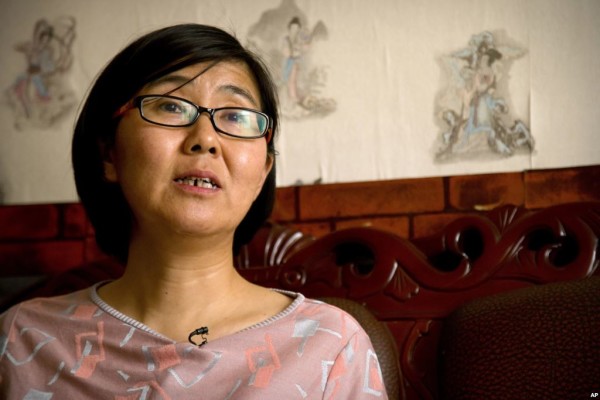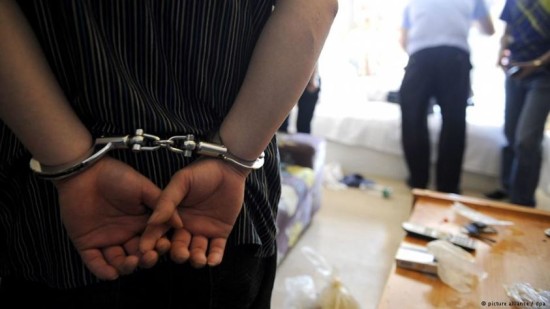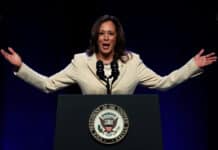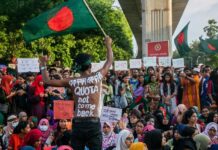More than 100 arrests • Human rights lawyers branded “enemies of the state”
chinaworker.info reporters
Xi Jinping has once again shown his authoritarian credentials with what appears to be a nationally coordinated weekend crackdown on human rights lawyers, described as ‘unprecedented’ by many observers. At least 107 lawyers, activists and their relatives have been detained or interrogated by police in 15 Chinese cities since Thursday, 9 June.
The high-profile crackdown may in part at least be connected to the disastrous meltdown in China’s stock markets during the past four weeks, with the Chinese regime fearing this could trigger political instability not least among millions of small investors who have lost their savings and retirement nest eggs. The one-party dictatorship (CCP) has a long history of ‘killing the chicken to scare the monkey’ as the Chinese proverb goes – enforcing social control by punishing certain groups or individuals. The very public nature of this weekend’s campaign suggests its primary aim is deterrence – to instil fear in other groups that may be considering protests.
The main target of the security sweep is the Beijing-based law firm Fengrui, whose legal staff have previously taken on politically sensitive cases and defended victims of official abuse. The People’s Daily, in characteristic propagandistic tones, said the weekend operation was to “smash a major criminal gang that had used the Beijing Fengrui law firm as a platform since July 2012 to draw attention to sensitive cases, seriously disturbing social order.”

Smear campaign
Foreign media reports quoted an unnamed employee who said more than a dozen police searched the Fengrui’s offices on Friday. This source said at least ten of the company’s lawyers, including director Zhou Shifeng, were taken into police custody. The media attack on the firm was a smear campaign, the employee said. One day earlier, Fengrui associate Wang Yu was arrested at her Beijing apartment in a dawn raid. Police also arrested Wang’s husband and 16-year-old son. A petition protesting Wang’s arrest was signed by more than 100 Chinese rights lawyers and activists, many of whom were subsequently rounded up as the police operation intensified.
According to Hong Kong-based legal advocacy groups, at least 82 of the detainees have now been released. Several of those released were reluctant to speak to journalists and others said they had been warned not to comment or post on internet about the arrests. The Financial Times reported that one human rights lawyer, Guangzhou-based Sui Muqing, has been charged with “inciting subversion of state power” and placed under house arrest. This charge is widely used by the Chinese regime to eliminate critics, and carries a penalty of up to ten years in prison.
The regime has grown impatient with rights lawyers which it sees as a thorn in its side. While the judicial system in China is heavily controlled by the one-party state and leaves little room for even the most skilful lawyers to protect the victims of state repression, the increasingly public profile of independent lawyers – via social media and in connection with popular social causes – has raised their authority as a critical voice against the CCP establishment. Eva Pils, an expert in Chinese legal affairs at Kings College London, told the New York Times that the CCP regime, “see a need to delegitimize it, to officially declare the human rights lawyers enemies of the state.”
“Strikes are on the rise”
Overseas groups, including Amnesty International have condemned the arrests. Amnesty spokesman William Nee offered an explanation for the current crackdown: “It is something they have never put up with but especially as it looks like social protests are on the rise, strikes are on the rise, there is the potential for economic uncertainty. I think all these factors have together in the government’s mind made them want to crack down on human rights lawyers.”
Since taking power in late 2012, Xi Jinping has modelled his rule on Putin’s Russia, with an increasing crackdown against all forms of opposition, including relatively moderate voices who accept and defend CCP one-party rule while advocating partial political reforms. This was the case with ethnic Uyghur academic Ilham Tohti, who received a life sentence last year for allegedly advocating ‘separatism’. Yet Tothi is known as a secular (non-religious) reform advocate with close family links to the ruling party. His imprisonment seems more like the regime wanting to demonstrate its resolve and ruthlessness in the face of a deteriorating political situation in the restive Western region of Xinjiang which has a majority Muslim and Turkic speaking population.
Last week, Beijing introduced a new national security law that contains extremely broad and sweeping definitions of potential security threats. This is a further sign that as the country’s economic woes deepen Xi’s regime is opting for even greater repression and a pre-emptive stance against potential opponents. But this hard line position could backfire on China’s new ‘strong man’ – triggering an explosion of mass anger against the dictatorship.




